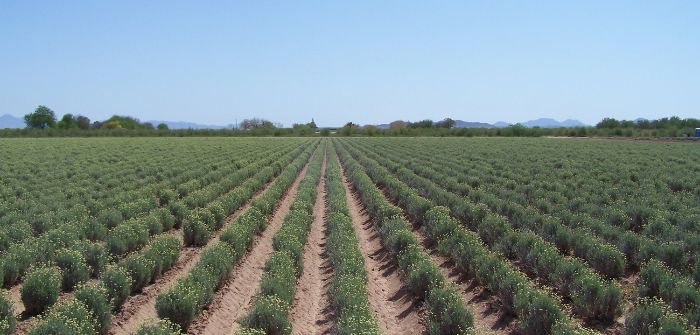The Biomass Research and Development Initiative (BRDI) has reported several key advancements emerging from the group’s work over the past year.
Cooper Tire & Rubber Company scientists have reached a key milestone in their work toward producing a concept tire by mid-2017 in which all of the natural and synthetic rubber is replaced by guayule-based polymers.
Concurrently, Cooper will continue studies on potential commercialization of guayule-based tires for the future. To date, Cooper has completed a number of tire builds, iterative work that includes the replacement of both Hevea and synthetic rubber with guayule in various components, and then testing each build for overall performance.
At the BRDI annual meeting, Cooper revealed that it has completed this process on nearly all tire components, and has tested these tires with promising results.
Chuck Yurkovich, Cooper’s senior VP of global R&D, said, “We have proven that we can replace traditional polymers with guayule in certain components, and that tires made from these components perform equal to conventional tires.
“We are optimizing the use of guayule formulations to develop not only a full guayule tire, but we will also evaluate guayule blends in certain components where an advantage has been shown to exist.”
Meanwhile grant consortium partner, the Agricultural Research Service of the United States Department of Agriculture (USDA-ARS), has completed the most extensive irrigation study ever done on guayule.
The study, which began in 2012 and involved two guayule fields in Maricopa, Arizona, compared surface irrigation and subsurface drip irrigation to determine the most effective method to drive higher rubber yield per acre.
The final harvest was completed in March 2015, and ARS concluded that drip irrigation provided an enormous benefit over other irrigation techniques and led to improved yields. The information obtained is critical to developing optimum guayule farming techniques to support a potential future guayule industry.
The BRDI annual meeting also included a report from Clemson University, which is responsible for studying the environmental impacts of the entire tire lifecycle using guayule versus traditional Hevea rubber in tire production. Clemson has completed early work on the development of a computer-based lifecycle analysis program for guayule-based tires that will help quantify the sustainability of the effort from genome to tire production and through the service life and disposal of tires.
In addition, PanAridus and Cooper have developed a proprietary solvent-based process to extract rubber from guayule plants. Under its work on the grant, PanAridus has produced rubber in quantities never before achieved for use in modern tires. This rubber has been supplied to Cooper for its work in the tire builds and testing.
Mike Fraley, CEO of PanAridus, said, “Hevea is currently the only commercial source of natural rubber available. The tire industry needs another source and the United States needs an economic, sustainable and stable alternative. With the dedicated research efforts of Cooper, it is unprecedented to see that guayule has been demonstrated to meet requirements for the very vibrant tire industry.”



